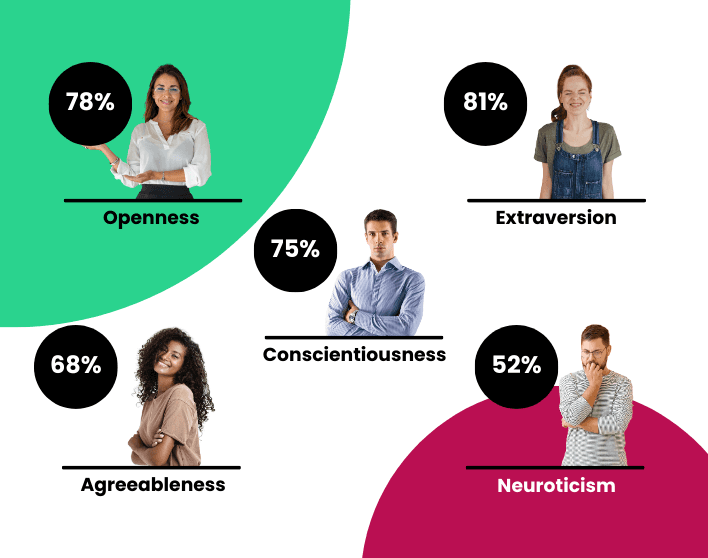The Bryq Team
HR Experts
What is a background check? A background check is something you may choose to use on job candidates to find out more about their past.
What Is A Background Check?
A background check as part of pre-employment screening can cover many aspects of a candidate’s history. This may include their employment, criminal, and financial past.
The background screening is most often done through a third party. However, there are certain types that may be conducted by yourself as the recruiter or hiring manager. One example is reference checks, which are more likely to be done by you in-house.
When using a third party, the Fair Credit Reporting Act (FCRA) limits what and how you can look into during a background check. They set specific standards around employment background checks that must be adhered to.
What Are Some Types of Background Checks?
The main question you are likely to have is, what can you check as part of a pre-employment background check? There are a range of things that you are allowed to check under the FCRA.
Some examples are:
Social Security number verification
This is a simple identity check to determine whether the candidate is who they claim to be. This is likely the simplest check that you may use before employing someone.
Previous employment history
The reason you may want to do an employment history check is that many people lie on their resumes or expand the truth. As mentioned, a person’s work history can be checked using reference checks. Either you can do this, or you can hire a third party to perform reference checks.
When you contact their previous employers, you should verify:
Job title
Employment dates
Why they left
Role responsibilities
Criminal background checks
This is a highly common check that is done on job applicants at the pre-employment stage. You can find out about many types of crimes and misdemeanors. These include:
Driving record
Felony convictions
Acquitted or dismissed charges
Pending charges
Misdemeanor charges
Performing one of these checks can be a fantastic idea because if you are going to hire someone who’s been convicted, you want to be aware of this risk. Knowing that a candidate has a conviction may help you make a hiring decision. You may be particularly interested in their driving record if the position involves a company vehicle or driving.
Credit checks
Credit reports are most often performed by credit bureaus. They have the ability to draw information on job candidates from a variety of sources. What is a background check on credit and what does it entail? You can get details of lending from financial institutions and credit card companies. Public records can show whether the applicant has been bankrupt in the past while tradelines can show lines of credit.
You may consider finding out about an applicant’s credit history because it can show whether your recruit is trustworthy with money. If they have been bankrupt before, this can signal the potential for irresponsibility or bad planning.
Education Verification
It’s more common than you may have realized for candidates to lie on their resumes about their education. Perhaps they are assuming that no one will check whether it’s true or not. If the education is important to the role they will perform, you should consider getting their education verified.
Social Media
Another highly common form of background check that many hiring managers and recruiters are now doing is a social media check. This is an easy one to do as you can simply look up the person on social media. Any information they share there is public as long as it can be seen by the public. You may find out a lot about their personality and lifestyle to determine an organizational culture fit.
What Are the Benefits of Background Checks?
There are numerous benefits to performing background checks on people you are considering hiring.
Avoid Making A Mistake
The first benefit is that checking a candidate’s past can help you avoid making a mistake. For example, an applicant may have a conviction for embezzling. If you are hiring for an accountant position, you may rather go with someone else. It’s better to know before you employ them than after.
Uncover Falsehoods
If an applicant has lied on their resume, you may find out when you do background checks. Whether it’s their previous employment history or education, these are the most common lies. When you check with the institutions, you may discover that they have lied. Then you know that this person is not trustworthy.
Verify Information
Perhaps you were suspicious of something the applicant claimed, such as their degree. Rather than discounting them because you don’t believe them, you could choose to verify the information instead. If it is true, you won’t have made the mistake of taking them out of the employment process.
Find Out About Their Personality
Through checks such as on their credit scores or social media, you may find out something about the person. Perhaps they are bad (or good) with money. Perhaps they are out drinking all night of the week. You can find out a surprising amount of information through these checks. These can help you to determine whether the person is a good fit for your organization or team.
A background check can be massively helpful for you as a recruiter or hiring manager. It can help you find out who is a good fit for your role and discover if a candidate has told the truth on their resume. These checks can be crucial to do with your preferred candidate before you make the final hiring decision.








